Search Results
Showing results 141 to 160 of 484
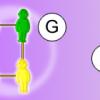
Yummy Gummy Double Helix
Source Institutions
In this activity, learners make their own edible DNA double helix out of candy and find out about the shape of DNA.
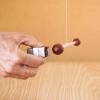
Repulsive Grape: Diamagnetism
Source Institutions
Do grapes, yes the grapes from the grocery store, move in the presence of a very strong magnet?
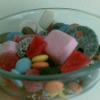
Candy Dish Natural Selection
Source Institutions
In this yummy biology activity (page 3 of the PDF), learners participate in a demonstration of natural selection.
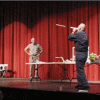
Marshmallow Puff Tube
Source Institutions
In this demonstration/activity, learners observe as a regular size marshmallow is blown through a tube made from a manila file folder.
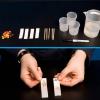
Candy Chromatography
Source Institutions
Learners analyze candy-coated sweets using chromatography. Learners use this method to separate the various dyes used to make colored candy.
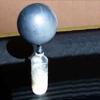
Yeast-Air Balloons
Source Institutions
In this activity, learners make a yeast-air balloon to get a better idea of what yeast can do. Learners discover that the purpose of leaveners like yeast is to produce the gas that makes bread rise.
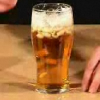
Lager Lamp
Source Institutions
In this demonstration, adult learners create a lava lamp using beer and nuts! Use this pub-themed activity to demonstrate the effects of buoyancy and bubbles.
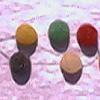
Gumdrop Chains and Shrinky Necklaces
Source Institutions
In this activity, learners thread gumdrops together to make a model of a polymer.
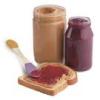
Peanut Butter and Jelly Robot
Source Institutions
This is an activity about robotics programming. Learners will discover how precise programmers have to be as they instruct a friend to make a peanut butter and jelly sandwich.
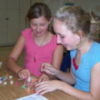
Gumdrop Dome
Source Institutions
In this activity (located on pages 23-24 of the PDF), learners are introduced to structural engineering and encouraged to practice goal-oriented building.
Pepper Scatter
Source Institutions
In this activity, learners explore the forces at work in water. Learners experiment to find out what happens to pepper in water when they touch it with bar soap and liquid detergent.
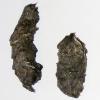
Owl Pellets
Source Institutions
In this activity (page 7 of the PDF), learners will investigate the contents of owl pellets. Learners will discover how owls digest their food as well as the kind of animals they eat.
Growing Rock Candy
Source Institutions
In this activity, learners make their own rock candy. Crystals will grow from a piece of string hanging in a cup of sugar water. The edible crystals may take up to a week to form.
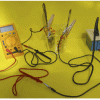
Cake by Conduction
Source Institutions
In this demonstration, cook a cake using the heat produced when the cake batter conducts an electric current.
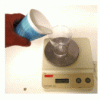
Toast a Mole!
Source Institutions
In this quick activity, learners drink Avogadro's number worth of molecules - 6.02x10^23 molecules!
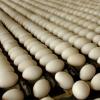
Take an Egg for a Spin
Source Institutions
This is an activity about friction as well as kinetic and potential energy.

Rock Candy
Source Institutions
In this yummy chemistry activity which requires adult supervision, learners use sugar and water to explore how crystals form.
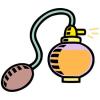
Make Your Own Perfume
Source Institutions
In this activity about olfaction (7th activity on the page), learners use natural ingredients to concoct their own perfume.
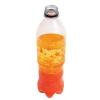
Liquid Lava Layers
Source Institutions
In this activity, learners explore the concepts of density and basic chemical reactions as they create a homemade lava lamp effect using water, oil, food coloring, and Alka-Seltzer tablets.
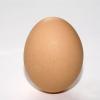
Eggshell Inertia
Source Institutions
In this physics activity (page 14 of the PDF), learners gain a better understanding of how friction and mass affect objects by comparing the rotational inertia of raw and hard-boiled eggs.
